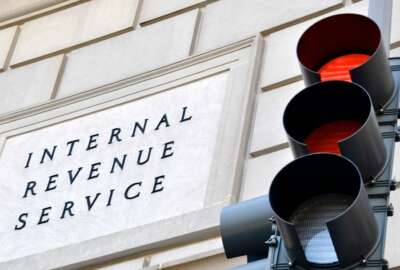
It’s filing season: Let’s make the IRS great again
The Internal Revenue Service can do better, but the need for more money is inescapable.
I don’t love taxes any more than the next guy. But like most citizens, I understand the need to pay for government and what it does. Even the most ardent libertarian wouldn’t argue paying for the Army and Navy at least.
After that things get murkier. Except for one more thing. The tax system should be fair to those who live under its obligations. The fairer a tax system seems, the more people will comply with it. Besides, fairness and justice are sort of core American values.
Now that we’ve established these minimum areas of agreement, I’ll propose one more. If the nation needs an Internal Revenue Service, it ought to be an excellent one. Good means fair, lawful, effective and accountable. That’s not just me. Those are also the criteria used by the Taxpayer Advocate Service. And it’s also roughly how the IRS itself states its own mission.
The IRS is far from perfect. But for most taxpayers, most of the time, it functions effectively.
For an agency to be good, it needs enough money to do its job. For several years, Congress has been whittling away at the IRS budget. Now, says the Taxpayer Advocate, “The IRS absolutely needs more funding.”
The TA is part of the IRS. But it’s less cheerleader than stern but loving schoolteacher. In the same statement, TA Nina Olson adds, the IRS has “plenty of opportunities to demonstrate it can do a better job” with the budget it’s got.
That budget has fallen something like 18 percent since 2010. The workforce as shrunk by 14 percent. In my recent interview, former IRS Commissioner John Koskinen put the “tax gap” at more than $400 billion. That’s money owed that the government will never see. Koskinen — and he’s not the first — says another billion or so in IRS budget would yield $8 billion in revenue anyhow.
Check out the latest Taxpayer Advocate annual report to Congress. It’s long but clearly written. And its easy to navigate.
Among “significant challenges in tax administration” I’ll point out two.
Private debt collection. This has been a bugaboo for years, with policy going back on forth on whether to use contractors for certain collections. At the moment, the IRS has a very small program. It’s a failure. The report says it costs $20 million a year, but only takes in $6.7 in tax payments. Almost half the people sucked into this program were low-income. Huh?
Contractors run the government to a far greater extent than the public likely realizes. But maybe it’s time to hammer that stake through the heart of privatized tax collection. Aside from the potential for abuse, it has never really worked.
Telephone service. This has also been a consistent difficulty for the IRS. The Taxpayer Advocate says the IRS has treated phone help as a “dying relic” as it pursues web services ways of answering taxpayers’ questions. It operates that the TA calls “archaic telephone technology.”
But phone service is not a dying relic. Last year, the IRS received 95 million calls to its toll-free numbers. What they got was average waits of 13 minutes. When taxpayers could get a question answered, it took an average of a half hour. The advocate would have the IRS make phone services “a vital part of an omnichannel service environment.” Translation: Let taxpayers have a choice of ways to contact the IRS, including phone.
I liken the IRS in someways to the D.C.-area Metro system. It’s crumbling. To be sure, poor planning, management and labor practices have been big contributors. But so is a lack of reliable funding. Now its motto is Back2Good. When I saw that, I thought, whatever happened to “excellent” or “great?”
As I wrote earlier, the new tax law adds an enormous burden to what the IRS already has to do. To starve it is to billions in legitimate taxes. As Olson writes, the impacts of the budget “are real and affect everything the IRS does.”
Copyright © 2025 Federal News Network. All rights reserved. This website is not intended for users located within the European Economic Area.
Tom Temin is host of the Federal Drive and has been providing insight on federal technology and management issues for more than 30 years.
Follow @tteminWFED
Related Stories






